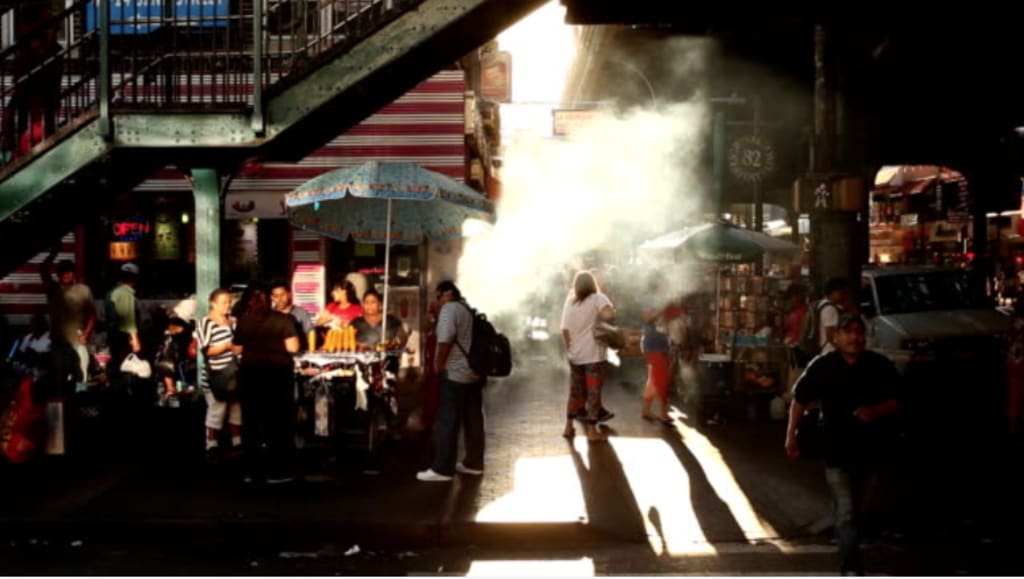Fatal Assumptions
When we judge people by their stereotypes, we miss what's in front of us.

“Alright class, today we are going to look at deadly mistakes and how to avoid them.” Special Agent Decker clicked the button on his laser pointer.
“I want you to watch this footage of the Madrid bombing last September. As you know, we haven’t shared any of this footage with the press, it is only being made available to you as a special courtesy from our friends in Spain. What you are about to witness does not leave this room. Understood?” He glared intensely around the packed classroom, making everyone squirm uncomfortably in their seats. Decker had a knack for making you feel guilty.
The projector screen lit up, a freeze-framed still from the busy train station ten minutes prior to the terrorist attack. A few trainees gasped, realizing they were about to witness something truly devastating.
“In order to learn, it is important to analyze our errors microscopically. What was the process of events that lead us here? Which steps could have been avoided for a more positive outcome?” He pressed ‘play’ and the footage began, a clock at the bottom counting away the last minutes of these people’s lives.
A train pulled into platform five. The doors open, passengers spilling out onto the platform, jostling their way through the rush-hour crowds in their haste to make connections.
Click. Time pauses, the passengers frozen mid-action. “What are your first thoughts?”
A dozen hands shot up. “You – Ruiz. What do you see?”
The small Hispanic woman looked at the screen intensely. “There, bottom right. That man exiting the train – in the turban and white robe. He’s just waiting on the platform by the door, everyone else is moving around him.”
“And that’s suspicious to you, yes? What about him makes you see him as a threat?” Decker’s grey eyes bore into her, and she regrets speaking up.
“Well… everyone else is in a hurry, and he isn’t,” she said timidly.
“Okay, and that is a fair point. I’ll assume for the sake of goodwill that you didn’t just judge him based on his appearance.”
Click! Movement again on screen. The man holds out a hand, and an elderly woman steps out of the train, holding his arm for stability.
“Bad assumption, Ruiz. He was waiting for his mother. If we look only for stereotypes we miss the critical details.”
The train crowd is thinning out, heading towards the concourse. On the bench in the middle of the platform is a box, wrapped in plain brown paper and tied up with string.
Click!
“Did anyone see who left the box?” No response, everyone had been watching the bottom corner. Decker rewound a few seconds. The crowd moved backward, gliding smoothly back through the train doors just before they shut. The video started over.
A teenager, olive-skinned and dark-haired, wearing an orange backpack. He has the box in his hands as he steps off the train, and then he disappears into the crowds, only his backpack visible in the sea of people. It took just 15 seconds for him to go from the train to the bench and disappear entirely from the screen.
Nobody on the platform notices the suspicious package for almost two full minutes. They greet loved ones, gather baggage, carry children or shopping. A woman with a bulky stroller is helped off the train by a nearby stranger.
Click! They freeze again, a sinister game of statues where losing has consequences.
“What do you notice now? Finch, tell us your thoughts.”
Finch’s brow furrowed. “The kid looked young, maybe early teens. He didn’t seem to be traveling with anyone. He doesn’t make eye contact with any of the other passengers as he moves towards the bench. He wasn’t delicate with it – just dropped it without flinching. So he doesn’t think there’s any chance of it exploding with him nearby… that makes me think there must be some kind of remote trigger. That or he doesn’t know what’s in the box at all.”
“Okay, that’s a good start. We can see the box isn’t heavy, and it isn’t fragile. What else?”
“He’s moving at speed through the crowd, so he seems to know better than to stick around. He must know the explosion is imminent.”
“A fair assumption. Although he could also be late for a connecting train – remember, this train was running eight minutes slow that day.”
Click, the footage continues. A woman with spiky pink hair and a hand-painted denim jacket is waving her arms around, pointing at the package. A couple of people nearby glance at it, then step back and move away. A space opens up around the bench and a uniformed station worker heads up the platform against the tide of passengers.
“So the package has been spotted. It’s just two minutes since the train arrived, and already the package has been reported to staff. Pretty efficient, right?”
The employee speaks into his radio and begins ushering people away from the bench. Some of them are running now, scrambling and pushing to get away from the unattended box. The woman with the stroller grabs for another child, a toddler by her feet. She scoops the child over her shoulders and runs from the scene, heading for the main concourse. Click.
“Any observations to make?” Decker looks around at the students, pointing to one of them.
“The guy top left in the green hoodie – he’s fiddling with something, a phone I think. He isn’t leaving the scene like everyone else. Maybe it’s the detonator?” Murmurs of agreement from the others.
The footage continued. Green hoodie is holding his phone up – clearly videoing the scene. Other station workers are making their way towards the platform, and a friendly-looking older woman with curly gray hair has grabbed the stroller, pushing it towards the concourse. The first employee is poking at the box with a stick, trying to turn it to read the label. It is now three minutes forty seconds into the video. Two armed officers in body armor are walking swiftly towards the bench. Suddenly the camera shakes crazily, the image distorting and rattling as a brilliant white light fills the screen. Then darkness. Click. Gasps around the lecture hall.
“The bomb went off. What did you do wrong? What did you miss?”
“It… it wasn’t in the box!”
“Who said that? White?” Decker looked at a woman with tight braids in the front row. “You’re absolutely right. The bomb wasn’t in the suspicious package at all. Where was it?” He rewound the last thirty seconds, replayed it. Then again.
White raised her hand. “Was it… was it in the stroller?” Sharp intakes of breath from the students nearest her. “The Mother left it behind, even though you can see a baby in it, look, its arm is waving… why would she leave one of her kids?”
Decker smiled. “Great thinking. And we will switch to another angle now, look – see how the mother lets go of the pram, grabbing up the toddler and fleeing towards the left of the concourse. Meanwhile, the older woman has noticed the abandoned infant, and is trying to be helpful. Look, she pushed the baby away from the package and into the supposed safety of the main thoroughfare. She literally transports the bomb into the most crowded part of the station, without a second thought to what she is doing. Then kaboom! It’s all over. One hundred seventy-two injured, sixty-eight dead. So, what can we learn from this?”
A few of the trainees are looking emotional, others seem shell-shocked. Ruiz raises her hand.
“That terrorists aren’t always who we expect. Not Arab men in turbans, not people who act suspicious. Sometimes they are white women who don’t seem to fit any extremist profile.”
“Absolutely. That woman trusted the mother because she looked like her own daughter, perhaps, or a friend. That ‘one of us’ mentality. It’ll get you killed if you aren’t careful. Because there is one thing you have to take away from today’s lesson.” He paused, rewinding the video and letting it replay one final time to the silent audience.
“Terrorists don’t have moral codes like us. They will use anything, anything at all, against us. Including our love and our trust. An abandoned kitten in a cat carrier left on a bus? These people want to kill as many people as possible. What makes you think they’d balk at a kitten? Or a baby? After all, the bomb squad are hardly likely to suspect a baby… right?”
The chubby little hand waves from the stroller. The people rush by, unaware they will never make it home for dinner. The gray-haired woman approaches, smiling, wanting to help. So innocent. So unsuspecting.
“That’s it for today. Write me an essay on why our own assumptions are the biggest problem anti-terror squads have to face. 2,000 words, due Friday. Dismissed.”
The screen was frozen, the clock stuck at three minutes thirty-nine seconds. No matter how many times he viewed it, it never got any easier. Decker sighed, and turned off the projector. The dark screen brought some relief.
About the Creator
Angel Whelan
Angel Whelan writes the kind of stories that once had her checking her closet each night, afraid to switch off the light.
Finalist in the Vocal Plus and Return of The Night Owl challenges.






Comments
There are no comments for this story
Be the first to respond and start the conversation.